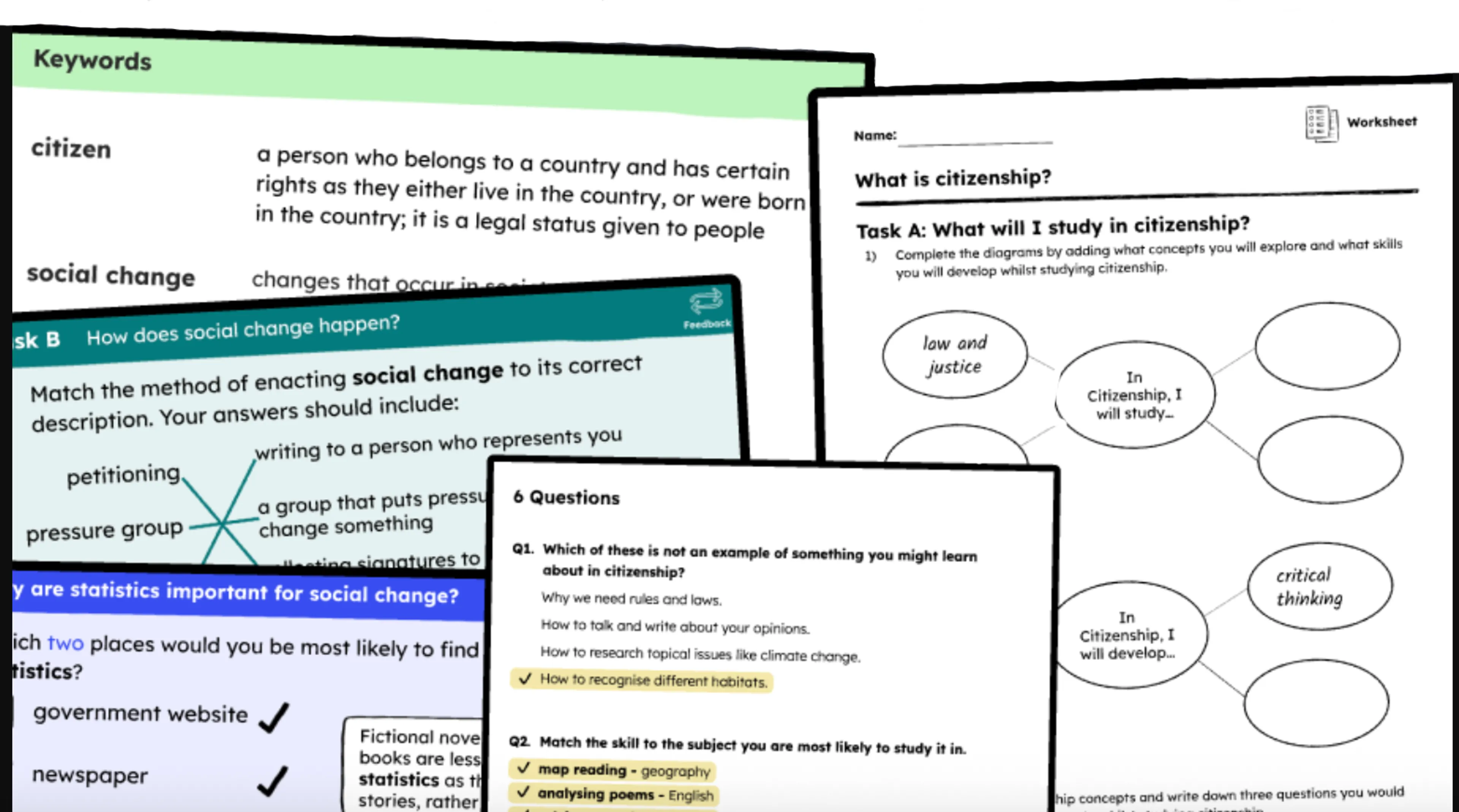
Categories
Curriculum planning
16 October 2025Teach active citizenship and inspire your pupils

Geoff Wells
Citizenship and RSHE Subject Lead
Citizenship is at the heart of helping young people understand their place in society and the power they hold to shape it. With Oak’s brand new citizenship curriculum and lesson resources, you can save hours of planning time each week. Everything has been carefully developed with subject experts from the Association for Citizenship Teaching, so you’ll have the confidence to deliver lessons that make a lasting impact.
Throughout our curriculum, we provide pupils with the opportunities to research, develop and discuss a wide range of topics, including votes for 16 year olds.
Explore the new curriculum:
- Key stage 3 and key stage 4 core citizenship curriculum plan
- Key stage 3 and key stage 4 GCSE citizenship curriculum plan
Flexible resources that work for you
We know citizenship is taught in many different ways – from form time and assemblies to timetabled lessons. That’s why these new resources are fully adaptable. You can pick them up and use them as they are, or easily adjust them to suit your setting and the needs of your pupils.
As they are developed by subject experts, they give you the confidence to teach citizenship, no matter your level of expertise. The first unit for year 7 Citizenship - what’s it all about is a great starter – it introduces the concept of social change, explores why society needs rules and laws, as well as tackling democracy and the features of a democratic community.

Inspiring content for today’s world
Citizenship is about connecting the classroom with the world outside it. That’s why our lessons are rooted in real, up-to-date case studies from the UK and beyond. Pupils will explore regeneration in Brixton, examine digital democracy, and debate the influence of social media and AI in elections (see the year 10 unit How is social media changing our view of democracy?). With regular updates, content always reflects the issues shaping society today.
Starts with the local and builds to the global
The curriculum is designed to grow with your pupils step by step. In year 7, they explore how they can engage with their local communities. In year 8 they learn about political systems in the unit How does the political system work in the UK?. By year 9, they’re considering regional and national issues. At key stage 4, the focus broadens to world affairs, including Britain’s evolving relationship with the EU which is covered in the year 11 GCSE unit How well has the UK adjusted to its changing relationship with the EU?.
This clear sequencing helps pupils understand society at every level, from their own neighbourhoods to the wider world – developing the knowledge and skills to think critically.
Clear KS4 pathways
Every school has different needs at key stage 4, so we’ve created two clear pathways. You’ll find a full GCSE citizenship pathway for those studying for the qualification, alongside a core curriculum for pupils not taking GCSE citizenship. Both ensure pupils have access to high-quality lessons that deepen their understanding of society and prepare them to play an active role in it.
Building lifelong habits of active citizenship
At every key stage, pupils are supported to build lifelong habits of being an active citizen. Practical ideas and examples show them how to improve their communities, helping them see the impact they can make, for example in year 8 pupils examine What actions can we take to address climate change?. This emphasis on active citizenship runs throughout the curriculum, giving pupils not just knowledge but the confidence to take part.
Linking to financial education
Citizenship and financial literacy go hand in hand. Alongside exploring big national questions about investment and public spending, our curriculum connects directly with our new financial education lessons across KS1-4. Pupils will develop the skills to navigate not only civic life, but also their personal financial futures.
Designed for every pupil
We’ve ensured that the curriculum is dual coded, with text combined with illustrations to aid memory, understanding and accessibility. Every pupil deserves the chance to understand their rights, responsibilities, and opportunities as active citizens – and these resources are built to help you make that happen.